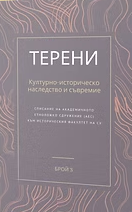Промяната в детските игри под влиянието на популярната култура и образователните институции
DOI :
https://doi.org/10.60053/TER.2018.3.162-172Резюме
Playing is a natural form of human's behaviour in childhood. While playing children develop their individual characteristics and social skills. Recognising the nature of children's play, the author describes the effect public education and mass culture (television, magazines, books, etc.) have had on its development throughout the 20th century. In order to follow the process, for this article is held a research among representatives of two generations – a man and two women born in the 30's in different parts of Bulgaria and four women born in the 60's in Sofia, Bulgaria. Analysing the memories from their childhood they recreate in interviews a conclusion could be made that children who live in different social conditions (in this case – the two generations have lived their childhood in two different political and economical systems) naturally develop their games according to the social behaiviour of adults they witness in their everyday life and the influence education and mass culture have on their perception for their own place in society.
Библиография:
Вачков 2011: Вачков, Д. и др., НРБ от началото до края, ИИБМ, С, 2011 Вулф 2016 : Вулф, К. Антропология на възпитанието. „Изток-запад”. С, 2016
Еленков 2010: Еленков, И. Даниела, К. Детството при социализма. изд. „Рива”. С, 2010
Илиева 1999: Илиева, А., За обредния характер на някои детски игри в България - Български фолклор, кн. 3, 1999
Немов 1994: Немов, Р.С., Психология, кн. 2, изд. „Просвещение”, Москва, 1994
Пеев 1988: Пеев, Ст., Детска психология, Висш педагогически институт, Благоевград, 1988
Тошкин 2003: Тошкин, А. и др., Трето българско царство 1879-1946, изд. „Труд”, С, 2003






